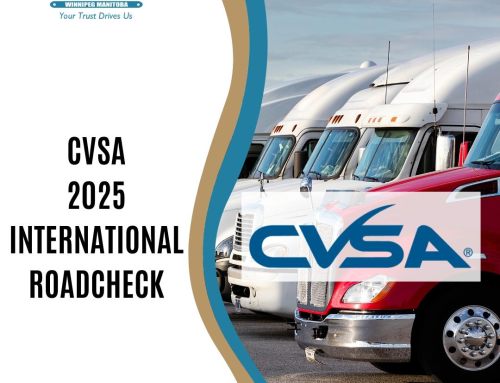 CSA Score Important to Trucking Companies
CSA Score Important to Trucking Companies
Trucking companies CSA scores are important. The Federal Motor Carrier Safety Administration (FMCSA) created the Compliance, Safety, Accountability (CSA) to collect and track data on transportation companies compliance and safety. It’s essentially a database of interactions with carriers and drivers. It allows the FMCSA to identify and track companies with compliance issues. It’s also a useful resource to help trucking companies track their own performance.
Whenever we’re on the road our goal is to be in COMPLETE compliance with regulations and operate safely. Safety is our number one concern.
While drivers obviously take safety and operating safely seriously, we can sometimes think we’re in compliance and overlook smaller things which through us out-of-compliance with regulations. These violations have an impact on our CSA score and can trigger more inspections for our fleet or, even worse, red flag us with the FMCSA. It’s like many small paper cuts because the little things add up in a data driven system. Any violation is a serious violation and we need 100% compliance all the time.
Common CSA Violations
Some of the top CSA violations are ones that trucking companies and drivers can easily avoid. These violations are easily correctable and should be noticed by the driver.
Logbook
Your logbook must be up-to-date to your last change of status at all times. Common logbook mistakes are
- not up-to-date
- missing information (form & manner violations)
- not flagging your 30-minute break
- 14 or 16 hour rule violations
Completely fill out your logbook including BOL # or load description. Form and Manner violations drive safety managers crazy. It’s easily avoidable by simply filling out your logbook.
Also, mark your 30-minute break as a “rest break” in the comments of your log. We’ve seen drivers receive warnings (which go against our CSA score) for not marking their break as a “rest break” even though they’ve taken the break properly and they’ve logged the required 30 minutes off-duty.
Tire
Tread depth and unusual ware are common problems and a major safety hazard. This is a problem that can usually be spotted before you leave the yard. Fleets should also have tire maintenance policy and procedures.
Lighting
Broken or non-functioning lights are some of the most common CSA violations and includes broken or missing lights, reflectors, and reflector tape. Malfunctioning lights are easily seen by enforcement and can trigger a more thorough inspection of the vehicle and driver.
Ensure you’re doing proper pre-trip and post-trip inspections. Frequent vehicle walk-arounds throughout the day when you stop will allow you to stay on top of the condition of the truck. Carry extra fuses and light bulbs to easily avoid this safety violation.
Brakes
Brakes need to be inspected during your daily vehicle inspection. Drivers should be trained to know what to look for and qualified before they make any brake adjustments. Having properly working brakes is critical for safety. Brake problems should be reported to the safety department.
Medical Issues
Some jurisdictions require truckers to have medical exams and a valid medical certificate when they are driving. In Manitoba this is included in your class 1 license and MPI will notify drivers if and when an exam is required.
English Speaking
Drivers must be fluent enough in English to answer questions at roadside inspections and fill out required paperwork, which is all done in English. Proper screening when hiring truckers would eliminate many of these violations.
Truck and Driver Inspections
We have a goal and expectation of zero violations when we’re on the road. Safety should inform everything we do. If any Len Dubois Trucking driver has a maintenance or safety question or issue, our team is here to back them up. Safety is a team effort.





